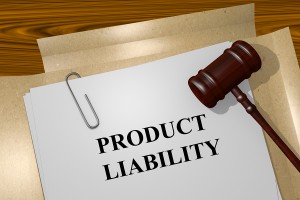 Between 1990 and 2008, U.S. spending on prescription drugs increased from $40 billion to $234 billion. Today, almost half of all Americans take at least one prescription drug, many of which are injured by severe side effects of dangerous drugs[1].
Between 1990 and 2008, U.S. spending on prescription drugs increased from $40 billion to $234 billion. Today, almost half of all Americans take at least one prescription drug, many of which are injured by severe side effects of dangerous drugs[1].
In general terms, “product liability” refers to the liability of a seller of a product which, because of a defect, causes damage to its purchaser, user, or sometimes a bystander. Responsibility for a product defect that causes damage lies with all sellers of the product who are in the distribution chain including the product manufacturer, manufacturers of component parts, wholesalers, and retail stores that sold the product to the consumer
If you have been injured by a pharmaceutical drug that you used, it is possible that you may have a defective products claim. Pharmaceutical-drug-based product liability claims are similar to other defective product claims, but pharmaceutical-related injury claims have a number of special features.
Types of Drug-Related Product Liability Claims
Drug-related product liability[2] claims come in three basic varieties:
- Defectively manufactured pharmaceutical drugs: This category of claims include injuries caused by pharmaceutical drugs that have been improperly manufactured or have somehow become tainted. This may be the result of an error at the manufacturing facility or the pharmacy where the drug was made or bottled, or a problem that occurs during shipping, or an error in labeling.
- Pharmaceutical drugs with dangerous side effects: This category of claims involves pharmaceutical drugs that, although properly manufactured, have side effects that result in injury. These cases sometimes involve drugs that have been on the market for a long time before it is discovered that they increase the risk of a certain type of injury, such as heart attacks. In some cases, the victims may claim that the manufacturer knew of the danger but deliberately concealed it. If the victims can prove this, they will get more money in the form of punitive damages.
- Improperly marketed pharmaceutical drugs: The “marketing” of a pharmaceutical drug refers to the warnings, instructions, or recommendations concerning the use of that drug. This category often involves injuries caused by a failure to provide adequate or accurate warnings regarding a dangerous side effect or a failure to provide adequate instructions regarding the safe and appropriate use of the drug. The “bad advice” may have been given by the manufacturer or by a doctor, pharmacist, sales rep, or some other medical provider.
Identifying Potential Defendants
It is important to work with an experienced product liability attorney to include all of the potential defendants in a drug-related products liability claim:
- Manufacturer. Pharmaceutical manufacturers are typically large companies, due to the huge market for pharmaceutical drugs and the technical challenges involved in developing new drugs.
- Testing laboratory. The drug that injured you may have worked its way through an elaborate series of tests on its way to the market, and you should include any of these testing laboratories as defendants in your complaint, especially if they are independent of the manufacturer.
- Pharmaceutical sales representative. Drug companies often make use of pharmaceutical “sales reps” who meet with doctors and other members of the medical community to tout the latest drug and make recommendations regarding its uses. Such representatives may be liable if they recommended the drug that injured you.
- Physician. The doctors who prescribed the drug that injured you may also be liable for your injuries because they are part of the chain of distribution of the drug. The doctors may also be liable based on their failure to warn you about potential side effects or to provide adequate instructions regarding the proper use of the drug.
- Hospital or clinic. Any company, including a hospital or a clinic, that was part of the chain of distribution between the manufacturer of the drug and you may be liable for the injuries.
- Pharmacy. A pharmacy is often the final point in the chain of distribution of a drug from the manufacturer to the patient. The pharmacist’s counseling regarding the use of the drug that injured you may constitute an additional basis for the pharmacy’s liability.
Contact a Pharmaceutical Product Liability Attorney
The pharmaceutical product liability attorney at McEwen Law Firm is dedicated to protecting consumers from unsafe products, including unsafe pharmaceuticals and dangerous medical devices. If you or a family member has been injured, or a loved one has died, as a result of an unsafe drug or a defective medical device, please call our office today: Phone: (651) 224-3833 Toll Free: (800)732-3070 Email: gmcewen@mcewenlaw.com
References:
[1] http://www.citizen.org/hrg1924
[2] http://media.mofo.com/files/Uploads/Images/101200-ch55.pdf